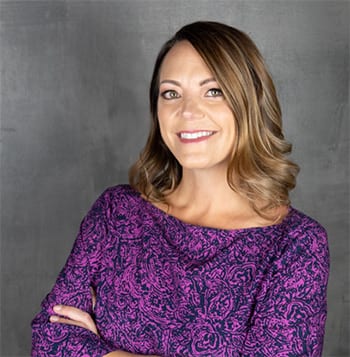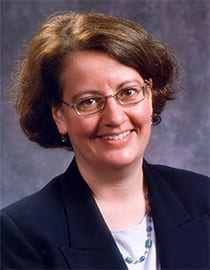By Gwyneth K. Shaw

The Center for the Study of Law & Society at Berkeley Law, a pathbreaking hub of interdisciplinary research for more than half a century, has a new executive director: Pamela Erickson, a seasoned policy expert whose experience stretches from Oakland to Africa.
Erickson comes to the school from the office of Oakland City Councilmember Abel Guillen, where she was a constituent liaison and legislative aide. She also worked at the U.S. Department of State as a program officer focused on democracy and human rights programs in sub-Saharan Africa and global women’s rights programs, as well as at the U.S. embassy in the Democratic Republic of Congo.
Previously, Erickson served in the Peace Corps in Rabat, Morocco, writing grants and fundraising for the development of a women’s cooperative in rural Morocco and for Arabic literacy classes for women. She earned a bachelor’s degree from UCLA and a master’s degree from Georgetown University.
Professor Catherine Albiston, the center’s faculty director, says Erickson is “perfect” for the role because she “embodies the Berkeley commitment to civic engagement in all that we do.” Erickson’s combination of local and international experience, particularly her skill at managing and supervising grants, will be invaluable to students and faculty, Albiston adds.
“She is also brilliant, thoughtful, and brimming with ideas about CSLS’s new focus on criminal justice, inequality, and democracy and civil society,” Albiston says.
Established in 1961, the center examines the social consequences and impacts of law, with an emphasis on empirical research and theoretical analysis. In concert with the Jurisprudence and Social Policy Program, CSLS has made Berkeley Law a premier destination for scholars who look at how law is used and experienced, often through the lens of sociology, economics, and other social sciences.
The leader in its field
“CSLS is without a doubt the premier law and society research center in the world and has been since its inception,” University of Wisconsin professor Howard Erlanger said when the center celebrated its 50th anniversary in 2011. “No one else has had the consistent parade of outstanding scholars as affiliates and visitors, and no other center has been responsible for as much research on socio-legal studies.”

Erickson says she’s delighted to be taking the helm and working with Albiston and Berkeley Law’s exemplary faculty to “continue the dynamic and interdisciplinary work the center fosters around empirical research and theoretical analysis of the social consequences of the law.”
Her intention as executive director is “to create more opportunities where we can bring academics doing timely, relevant research related to these themes in contact with policy makers and practitioners, creating more dialogue, understanding, and synergies in work that is helpful and meaningful for all parties.”
A Bay Area native, Erickson and says Berkeley’s reputation as a “progressive, forward-thinking and impactful academic institution” has always appealed to her.
These days, she also spends time volunteering in the Oakland community, promoting educational equity in the city’s schools, coordinating community volunteer projects, mentoring young people through the Oakland Promise and Girl Scouts, and organizing around the 2020 Schools and Communities First Initiative.
“There are so many reasons that she is perfect for this role,” Albiston says. “We are thrilled to have her.”